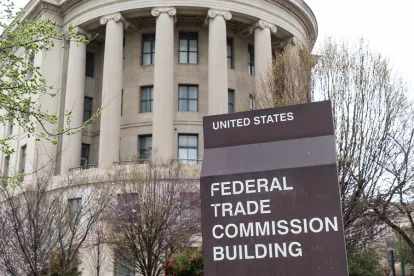When four paint companies claimed that their products had zero harmful emissions and were safe, the Federal Trade Commission (FTC) was not exactly tickled pink. In four separate complaints, the Commission cited Benjamin Moore & Co., Inc., ICP Construction Inc., YOLO Colorhouse, LLC, and Imperial Paints, LLC for advertising products as "emission-free or containing zero volatile organic compounds (VOCs), including during and immediately after application."
All four companies explicitly referred to or depicted babies or toddlers in their marketing materials. In addition, the products were sold under a variety of names, including "Natura" (Benjamin Moore), "BreathSafe," (ICP) and "Lullaby" (Imperial) that added to the implication of safety. In some cases, they made express claims. For example, ICP said its paints could be used without concern for emissions or VOCs in places where vulnerable populations were present, such as nursing homes and hospitals, while Imperial Paints displayed a pregnant woman in its print ads. As the FTC points out, "some of these chemicals can be harmful to the environment and people, especially to sensitive groups such as babies and those suffering from asthma or allergies."
Under their settlements with the FTC, each of the four companies are prohibited from making unsubstantiated claims that their products are emission-free or VOC-free "unless, at all times during application and after, both content in and emissions from their paints are actually zero, or emissions are at trace levels" (defined in the respective orders).
Significantly, the FTC ordered that each company produce corrective ads and notify their dealers to display them prominently. The orders also include a "means and instrumentalities" section which applies to the respondents "and their officers, agents, employees, and attorneys, and all other persons in active concert or participation with any of them" who receive actual notice of the relevant orders. These parties are prohibited from providing "the means and instrumentalities with which to make, directly or indirectly, expressly or by implication, including through the use of endorsements or trade names, any false, unsubstantiated, or otherwise misleading representation of material fact."
In the case of Benjamin Moore and ICP Construction, the proposed orders include specific provisions on standards for making "clear and conspicuous disclosures" that their paints are not emission- and/or VOC-free. Disclosures must be made through the same means through which the communication is presented. For example, where the communications is made through both visual and audible means, such as a television advertisement, the disclosure must be presented simultaneously in both the visual and audible portions of the communication. Where the paints are sold online, such disclosure must be displayed so as to be unavoidable to viewers. Marketing materials for the Benjamin Moore and ICP products depicted seals and certifications. Indeed, Benjamin Moore stated that the products were "independently certified." While several of the organizations referred to in its ads are independent, Benjamin Moore had developed its own Green Promise logo, which appeared on the company's product labels and marketing materials. The FTC has previously advised that a "material connection" to a certification or seal program must be disclosed to consumers under the FTC's Endorsement and Testimonials Guidelines. The settlements also require that Benjamin Moore and ICP make clear the seals/logos on their packaging are not third-party certifications but are self-made designations.
The picture is crystal-clear. Any express or implied claims that a product contains "low" or "zero" VOCs, or is safe as a result of the absence of certain chemicals, must be backed by reliable testing. More to the point, express or implied claims of safety - particularly for sensitive populations like babies and toddlers - should be examined with an eye to both the effect those products might have on such populations during application and use, and how the claims will be understood by a reasonable consumer. While they are vital to an array of everyday products, the role chemicals play, and the ways they can be used safely and effectively in those products, is not always understood by consumers. As always, when it comes to claims about the presence or absence of chemicals in products, both available scientific data about the product formula and use and consumer perception of those claims must be considered to establish that the express and implied claims can be supported. Businesses who don't may find they've painted themselves into a corner with the FTC.





 />i
/>i

